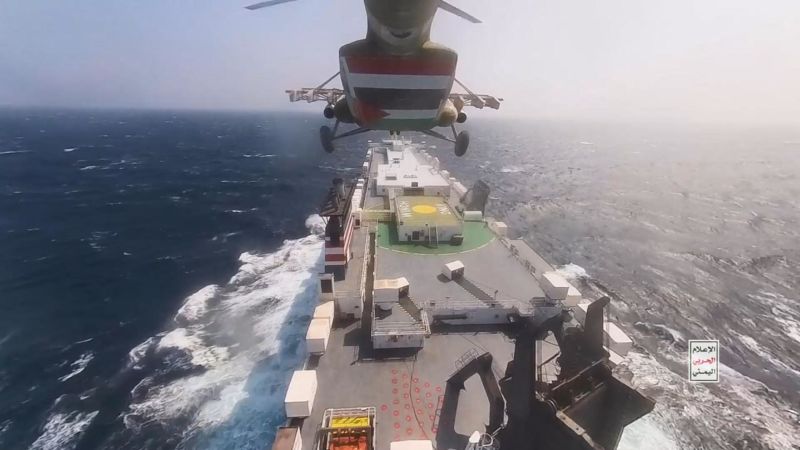The US Navy shot down a total of 24 Houthi missiles and drones launched from Yemen, according to two US defense officials, in one of the largest Houthi attacks to take place in the Red Sea in recent months.
According to initial assessments, there were no ships damaged in the attacks and no injuries as a result of the massive drone and missile launch, the officials said.
Three destroyers took part in the shoot down of the barrage, one of the officials said. The US has a number of ships in the Red Sea as part of Operation Prosperity Guardian, a multi-national effort to safeguard shipping in one of the world’s most critical waterways. The coalition consists of more than 20 countries.
“We can confirm a Houthi attack occurred today near the southern Red Sea. We’ll provide additional details when they’re available,” a third defense official said.
It was not immediately clear whether the missiles and drones were launched simultaneously.
The launch comes with US Secretary of State Antony Blinken visiting the Middle East in an attempt to contain the Gaza war and prevent a regional escalation.
Blinken was in Israel on Tuesday, where he told officials that Palestinians in Gaza must be allowed to return to their homes “as soon as conditions allow.” The secretary has repeatedly called on the Israeli government to reduce the number of civilian casualties as a result of Israel’s bombardment of Gaza.
The Iran-backed Houthis have said their launches of drones and missiles are showing solidarity with the Palestinian people. Their first series of attacks, which began shortly after the start of the Israel-Hams war, targeted commercial vessels with some connection to Israel.
But most of the last dozen attacks had no connection to Israel at all, Vice Adm. Brad Cooper, the commander of US Naval Central Command, said last week, even as it draws more nations into the situation.
The US assesses that 55 nations have direct connections to the ships that have been attacked, whether through the flagging state of the ship, the nationality of the crew, the ship’s origin and destination, or the vessels’ ownership.
“The impact of these attacks spreads across the globe, and as we’ve said, this is an international problem that requires an international solution,” Cooper said.
Read the full article here








